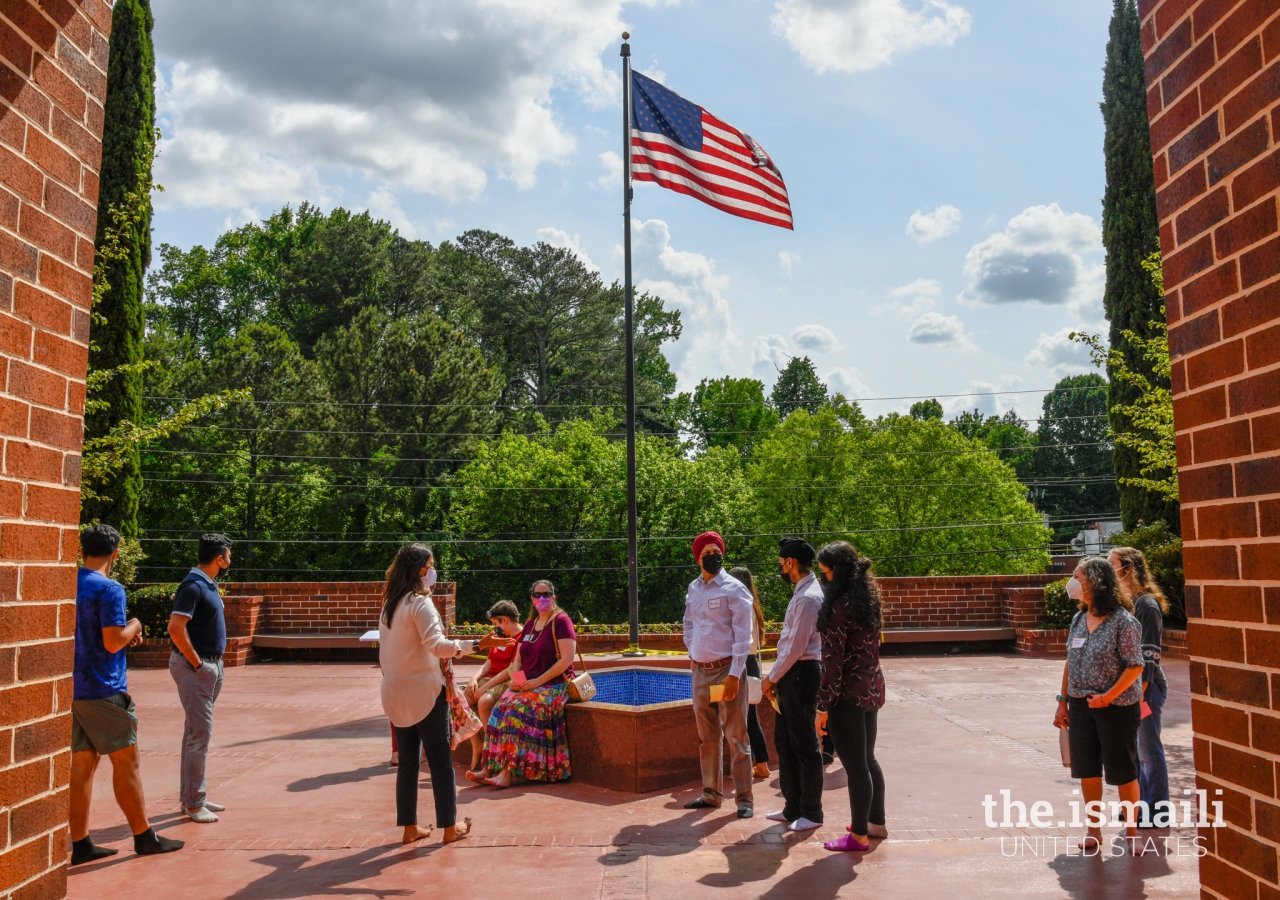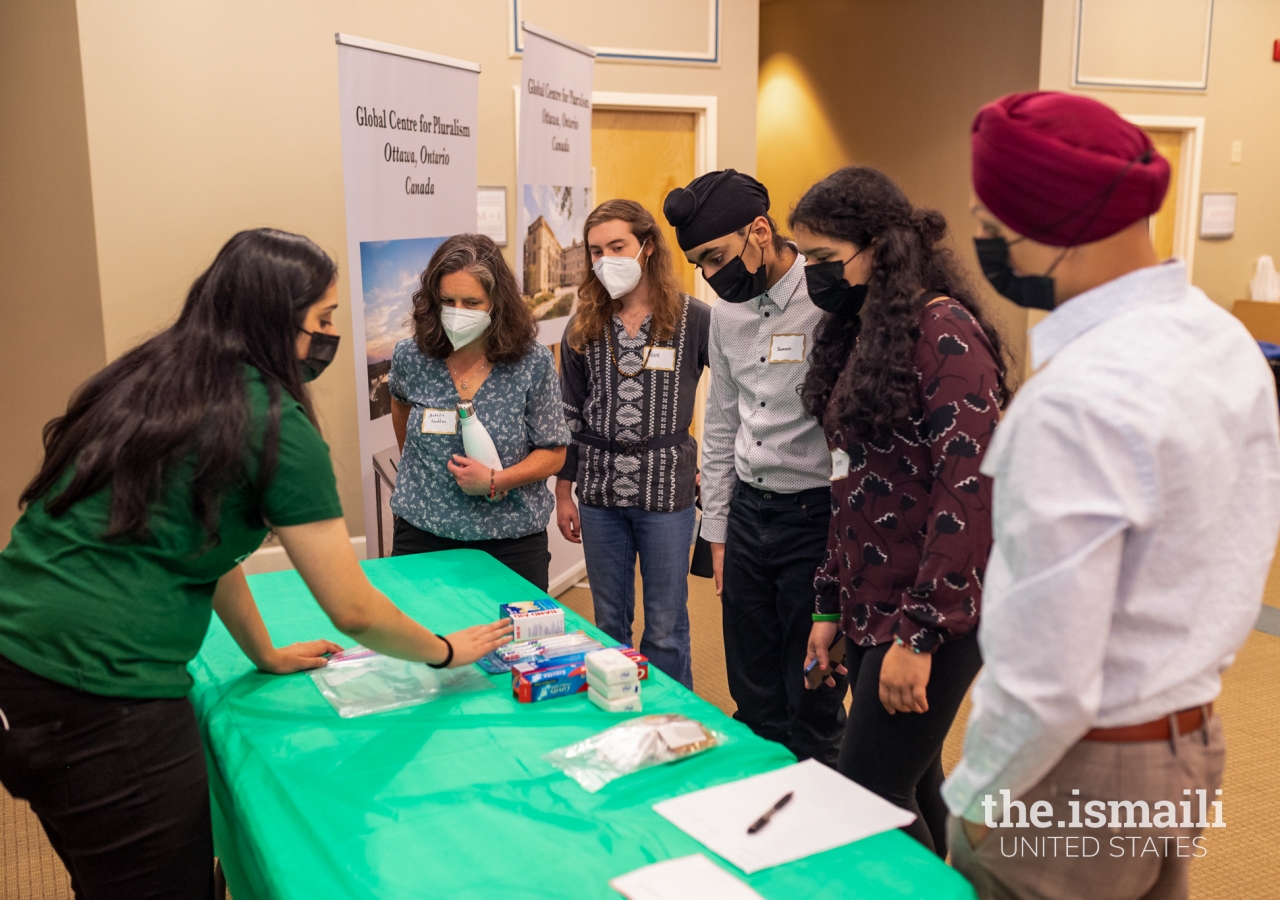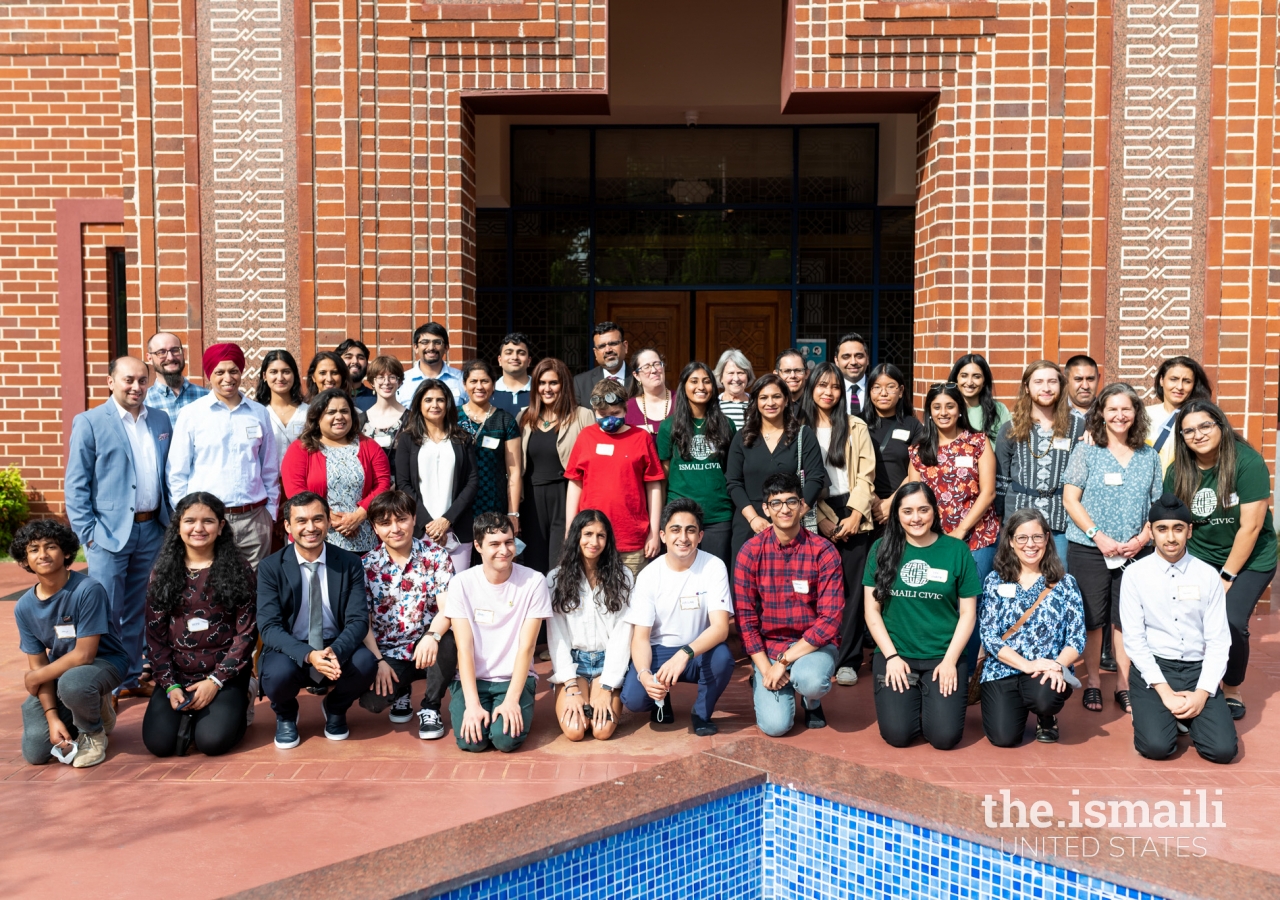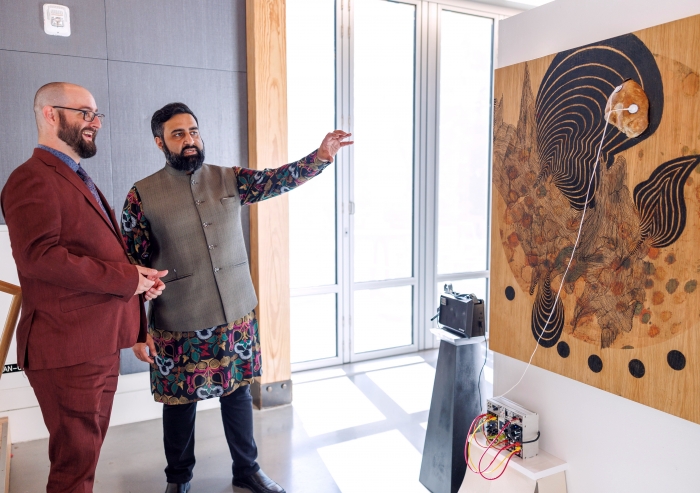In Atlanta Headquarters Jamatkhana on a Sunday afternoon, a group of Ismail CIVIC volunteers stands huddled in the entryway to the anteroom. A splay of chairs sits clustered together over the ochre-pink carpet with its repetition of patterns. Seated in rapt attention is a medley of people hailing from a multitude of faiths and beliefs, including Sikhs, Hindus, Muslims, Christians, and Jews.
This medley isn’t, however, incidental. The crowd, in large part, is affiliated with an organization called Interfaith Atlanta, a local group whose self-stated mission is: “...Promoting understanding, respect, prayer, interaction, and unity among the diverse faiths in the greater Atlanta region, and advanc[ing] the influence of voices of the faith communities for the common good.”
From the podium, President Salima Jaffer delivers an impassioned speech about the intricacies, significance, and power of pluralism in both religion and humanity, citing evidence from the Qur’an and an excerpt from a speech by Mawlana Hazar Imam: “Pluralism does not mean the elimination of difference but the embrace of difference,” she quotes.
At her periphery, volunteers stand ready to part the group of approximately sixty participants, from school-age children to older adults – into two groups that will be led separately for a guided tour of the Jamatkhana grounds, during which they’ll learn about Islam and also trace similarities among different faiths.
Image 1036
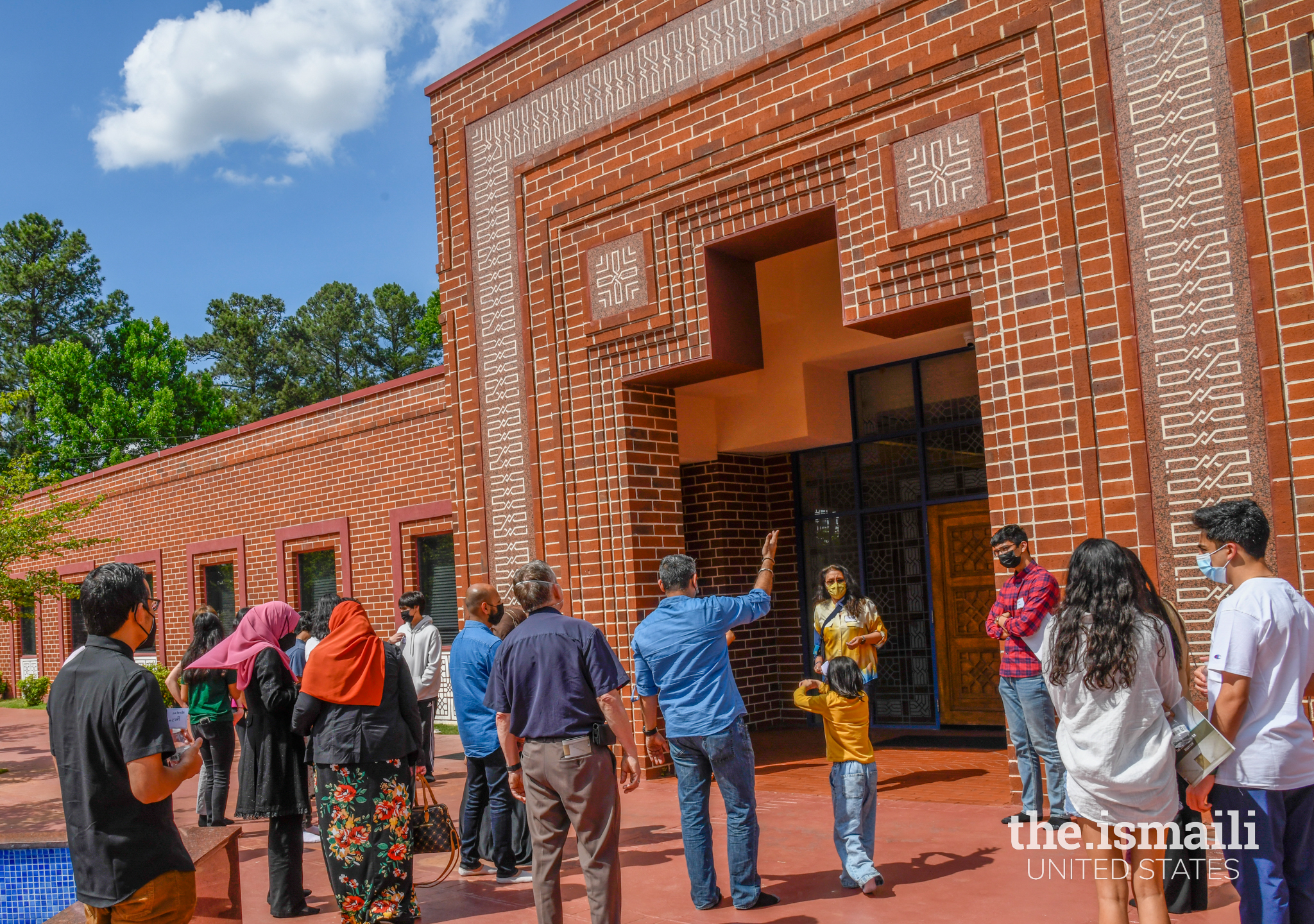
In the Religious Education Center, the group filters into the view of posters displaying the Ismaili Centers built throughout the decades, ending with the Ismaili Center Houston. Attendees huddle around as one of the presenters, Shelina Merchant, highlights the purpose of the Centers – to bring pluralism into action and create a space where people from all walks of life, cultures, and convictions, can convene and carry a conversation while embracing our oneness as humanity.
The symbolism behind different elements of the centers’ architectures is highlighted, such as the significance of green space to depict our oneness with nature and the reflection of images in water structures, such as ponds and fountains, symbolic of self-reflection and paradise.
The Jamatkhana’s brightly-lit library – reflecting the quest for knowledge Mawlana Hazar Imam encourages us to embrace as a lifelong process – overflows with books of all sizes and shades. The attendees thumb through titles eagerly, exploring the literature available for young and old. “Remember,” Shelina advises the crowd, “Knowledge is only useful if it is accessible.”
The courtyards hold splendor in the sunlight, seen in the expressions of the spectator taking in the red brick facade, fountains, and tiles, with awe.
In the Prayer Hall, a hush falls over the crowd as they stare at the intricately carved wood panel comprising the front wall, illuminated by light from within. Chris Ray Alexander, a member of the Interfaith Atlanta Youth Board, draws in the ambiance. “What I find here,” he says, “Is a deep, tactile atmosphere of peace and an all-pervading warmth that is not something I necessarily always associate with entering into a religious space.”
As the tour draws to a close, the volunteers touch on the cornerstone of the Ismaili faith: service to others. Volunteers from Ismaili CIVIC take the stage, explaining that service propels us to build better futures for our families but also for our communities. A key tenet of the Ismaili faith, they elaborate, is ensuring that the success and good fortune we seek for ourselves and our loved ones is also accessible and within reach for others — irrespective of faith or belief.
Image 1
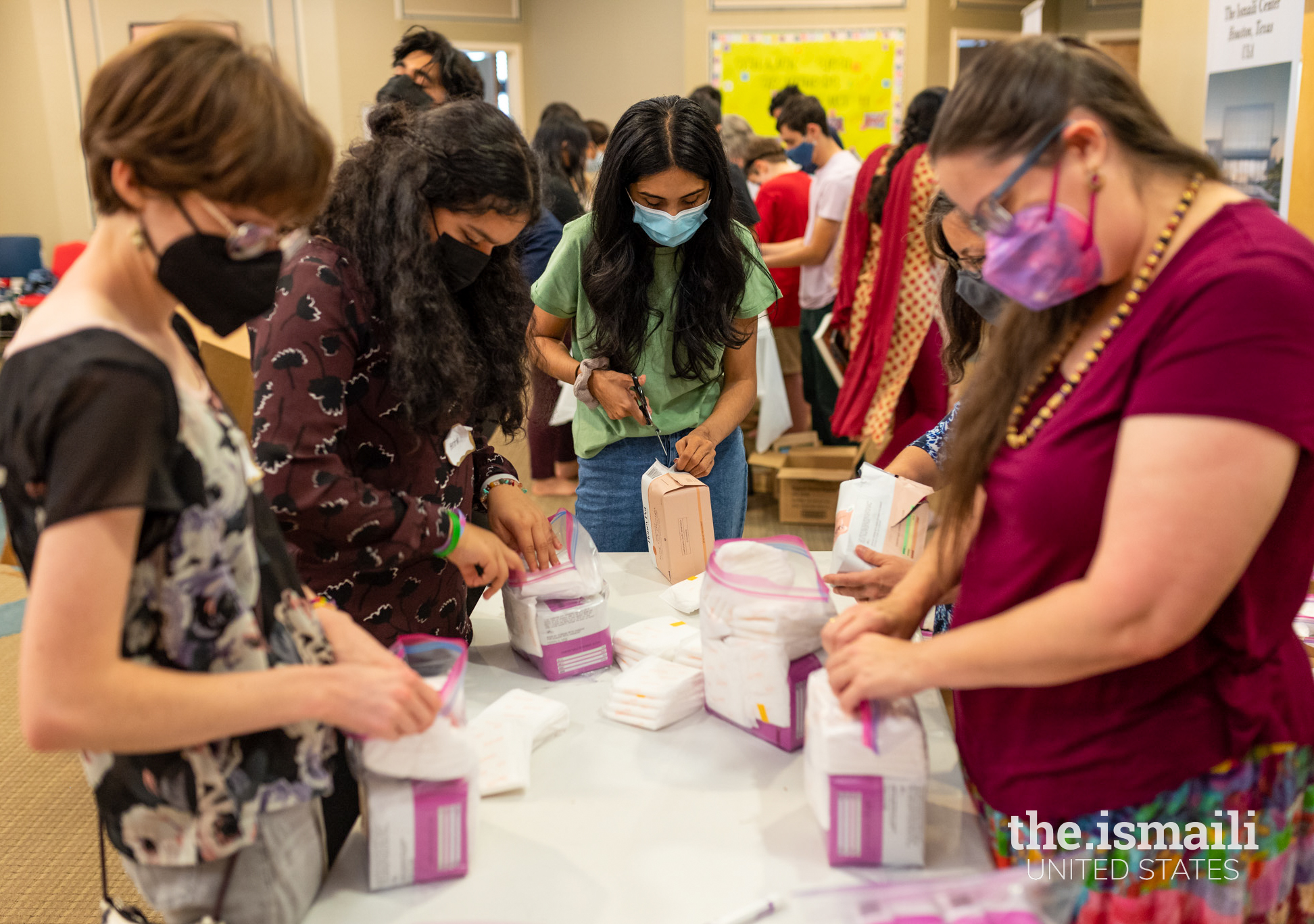
To demonstrate the type of work Ismaili CIVIC engages in, volunteers encourage attendees to lend a hand in the day’s designated service activity: compiling care packages with basic necessities for Afghan refugees.
The care packages are split into two distinct Ziploc bags – one that will carry hygiene essentials families require when arriving in the U.S., including soap, toothpaste, Band-Aids, and sanitary pads. The other will hold non-perishable items reminiscent of favorite staples from back home, to deliver a sense of familiarity and belonging to refugee families: apricots, cinnamon sticks, green tea, and cardamom.
“When we started, there were about twenty families we were serving,” says Ikram Ali, a lead volunteer with Ismaili CIVIC. “Today, there are over sixty.” The statement is indicative of the dire need and value of groups such as Ismaili CIVIC that lend assistance to the broader community in line with Mawlana Hazar Imam’s vision for outreach to assist the underprivileged.
The day concludes with a closing speech, a group photo, food, and networking among the volunteers and attendees. The infusion of merriment in the air, coupled with the ease with which the crowd exchanges dialogue, underscores the value of such events in establishing that plurality, indeed, can be a strength and not a divider, paving the way for greater understanding and friendships.
“There are a lot of stereotypes when it comes to religion,” says Noor Mehdi, a new member of Interfaith Atlanta. “It’s nice to see people acknowledging people for who they are and not which religion they belong to. If you educate people, you remove divisive barriers and make way for them to come together in respect.”

